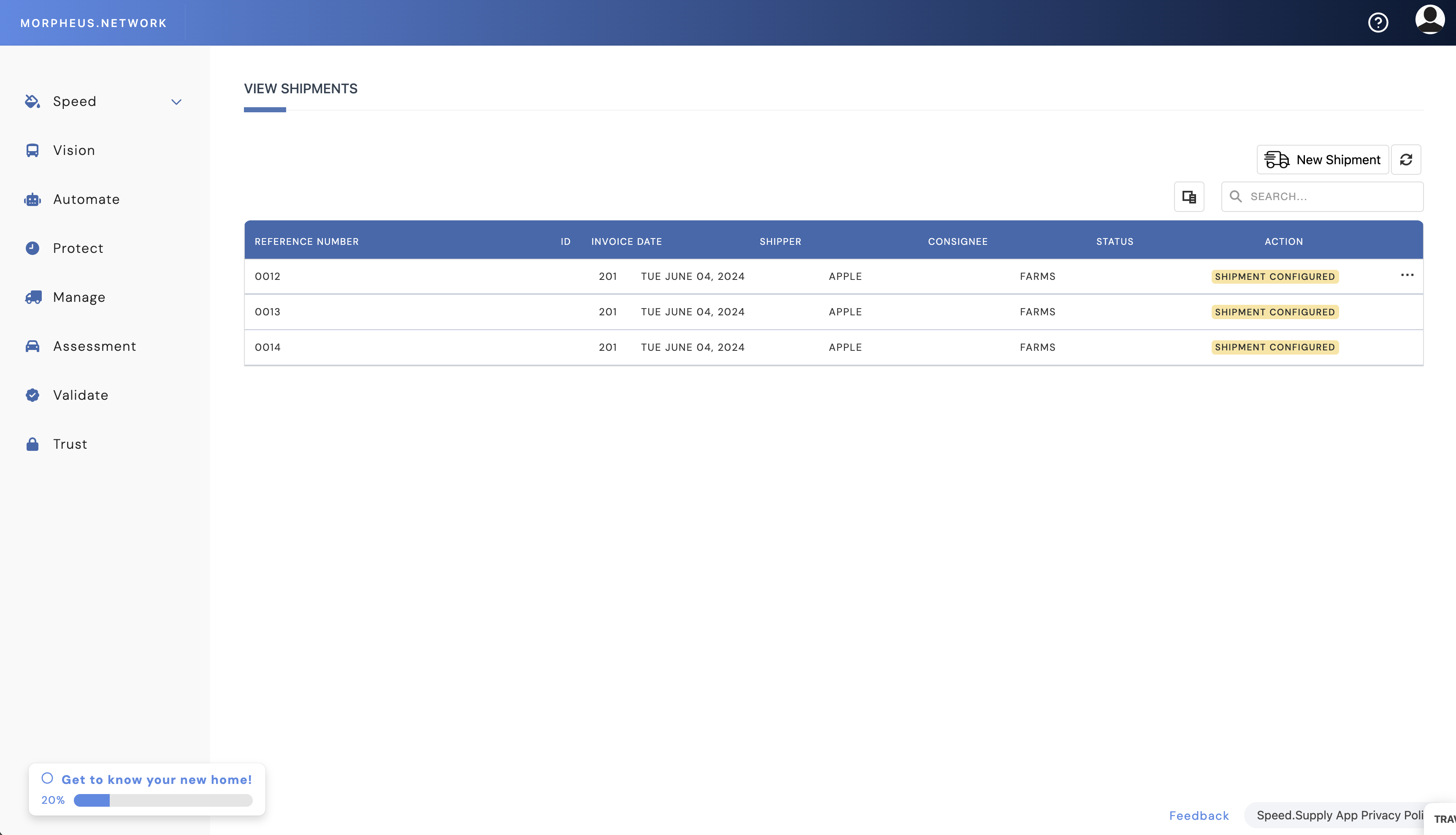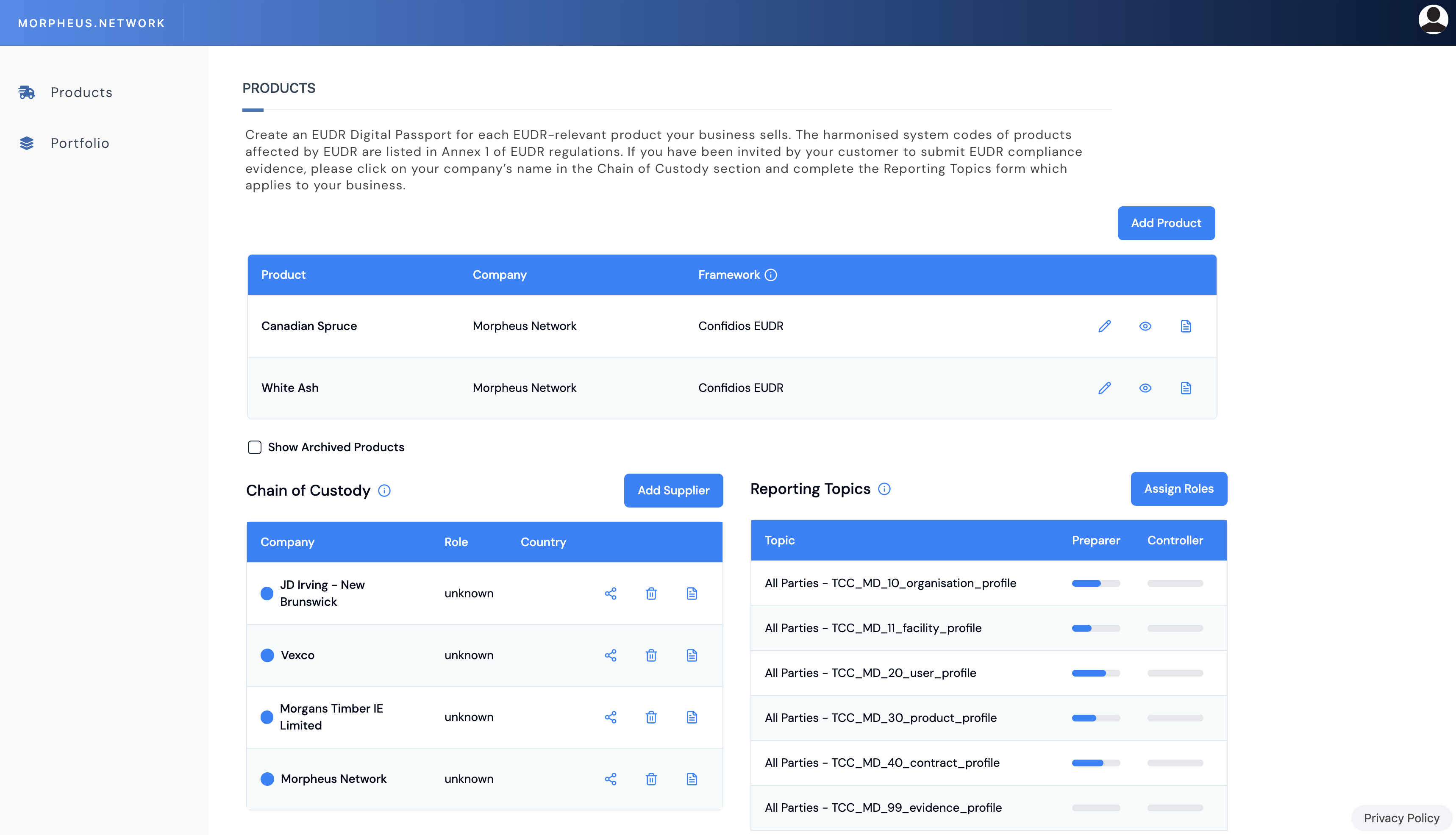EUDR.Supply



European Union Deforestation Regulation (EUDR) Compliance Made Easy
The EU Deforestation Regulation (EUDR) aims to minimize the EU's contribution to global deforestation and forest degradation by ensuring products placed on the EU market are deforestation-free. The EUDR guide provides comprehensive resources to help companies navigate the compliance process, ensuring they meet all regulatory requirements.
Companies are required to implement a three-step due diligence process:
- Information Collection: Gather data on products, including country of production, geolocation coordinates, and supplier information.
- Risk Assessment: Evaluate the risk of non-compliance with EUDR requirements.
- Risk Mitigation: Implement measures to reduce identified risks to a negligible level.
Companies must be prepared for EUDR enforcement, which includes regular audits and assessments to ensure ongoing compliance. Companies are also required to submit a due diligence statement through the EU Information System confirming compliance before placing products on the market.
The Morpheus.Network innovative EUDR solution offers everything you need to ensure EUDR compliance across your entire supply chain! It solution simplifies this process by centralizing all compliance tasks in one platform. It captures and validates supplier documentation, automatically checks geolocation data, and ensures that commodity origins align with EUDR requirements. This eliminates manual work, reduces the risk of errors, and helps businesses avoid costly penalties for non-compliance. Starting your EUDR journey with the right tools and resources can make the transition to compliance smoother and more efficient.
Introduction to EUDR Compliance
The European Union Deforestation Regulation (EUDR) is a landmark legislation aimed at preventing deforestation and promoting sustainable practices. To ensure EUDR compliance, companies must understand the regulation's requirements and implement effective risk mitigation measures. The EUDR compliance process involves conducting thorough risk assessments, collecting and reporting accurate data, and ensuring that supply chains are deforestation-free. By streamlining compliance processes and implementing a robust EUDR solution, companies can minimize the risk of non-compliance and ensure a smooth transition to deforestation-free supply chains.
Understanding Supply Chains
Supply chains play a critical role in EUDR compliance, as they are often complex and involve multiple stakeholders. To ensure compliance, companies must have a deep understanding of their supply chains, including the sourcing of raw materials, production processes, and distribution networks. This involves identifying potential compliance risks, such as deforestation or forest degradation, and implementing risk mitigation measures to address these risks. By mapping their supply chains and engaging with suppliers, companies can ensure that their supply chains are deforestation-free and compliant with EUDR requirements.
Due Diligence
Due diligence is a critical component of EUDR compliance, as it involves conducting thorough risk assessments and collecting accurate data on supply chains. Companies must submit due diligence statements to the EU, which include information on the sourcing of raw materials, production processes, and distribution networks. To ensure compliance, companies must also conduct regular supplier risk assessments and implement risk mitigation measures to address potential compliance risks. By using customizable workflows and integrating seamlessly with existing systems, companies can streamline their due diligence processes and ensure compliance with EUDR requirements.
Corporate Governance
Corporate governance plays a critical role in EUDR compliance, as it involves ensuring that companies have effective systems and processes in place to manage risk and ensure compliance. This includes implementing robust risk management systems, conducting regular audits and assessments, and ensuring that suppliers are compliant with EUDR requirements. By promoting a culture of compliance and transparency, companies can ensure that their corporate governance practices are aligned with EUDR standards and requirements. This involves providing training and awareness programs for employees, as well as implementing effective monitoring and reporting systems to identify potential compliance risks.
Data Collection and Reporting
Data collection and reporting are critical components of EUDR compliance, as they involve collecting and reporting accurate data on supply chains. Companies must collect geo-data on the sourcing of raw materials, production processes, and distribution networks, and report this data to the EU. To ensure compliance, companies must also implement effective data management systems, which involve managing data from multiple sources, ensuring data accuracy, and providing real-time insights into supply chain operations. By using advanced technologies, such as satellite imagery and machine learning algorithms, companies can streamline their data collection and reporting processes and ensure compliance with EUDR requirements.
Join our communication chain for news, updates and feature releases.
Speed.Supply provides lightning fast shipments, real-time tracking, custom alerts, carbon emissions tracking, one-click insurance and more!

